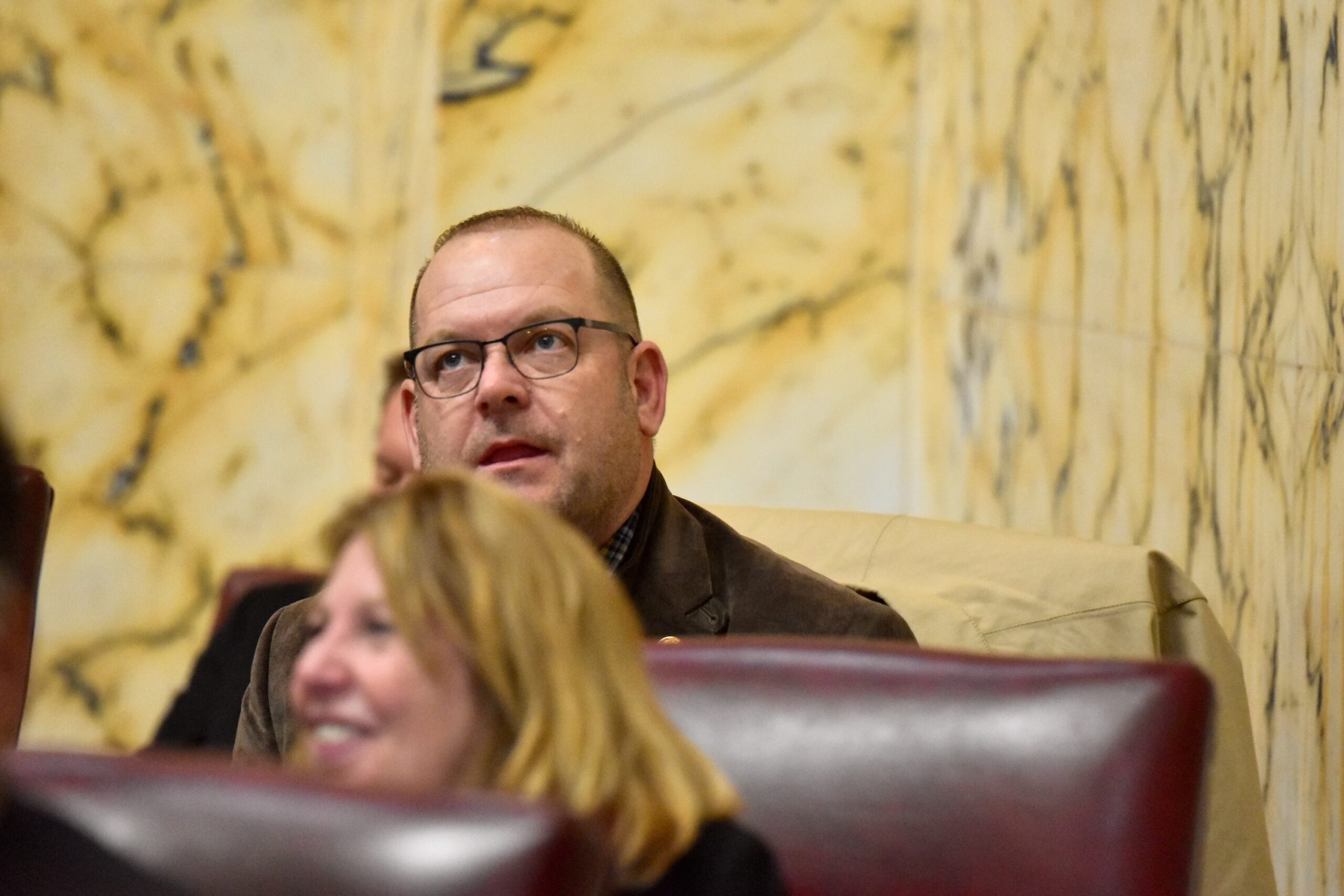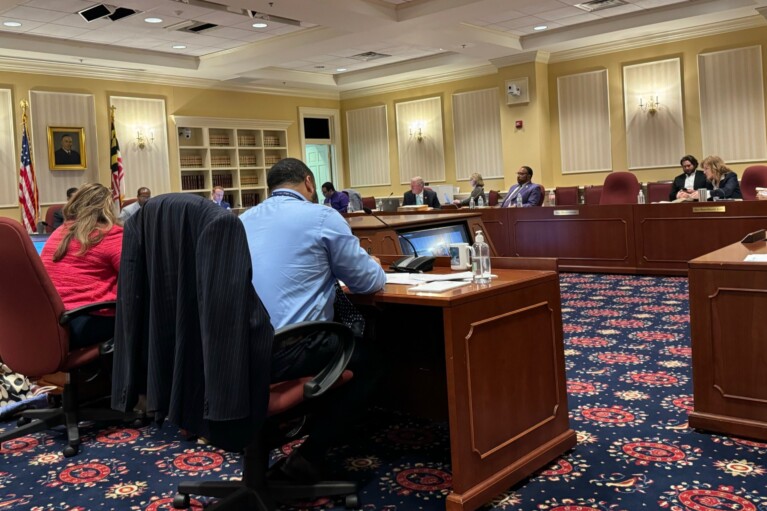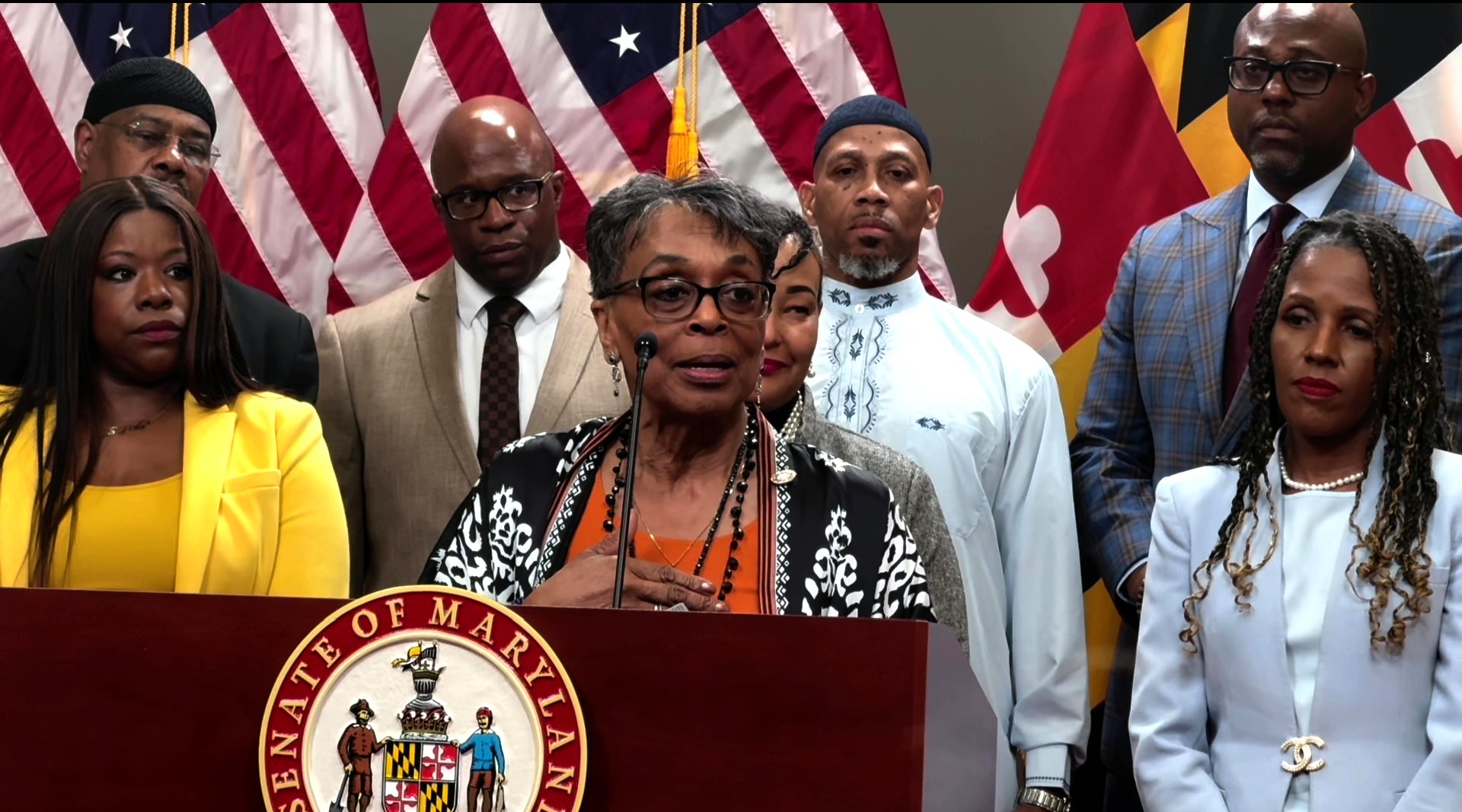Officials Call Pimlico Redevelopment Plan a ‘Win-Win’
Baltimore Mayor Catherine E. Pugh (D) and the Baltimore Development Corporation announced on Thursday that they “strongly endorse” a proposal to transform the city’s Pimlico Race Course through a three-year, $442 million plan.
The redevelopment plan was created by the Maryland Stadium Authority and paid for by Maryland Jockey Club, Baltimore Development Corporation, City of Baltimore and the stadium authority. The second phase of the report, released Thursday, contemplates the complete tear-down and rebuilding of all existing structures on the site including the tracks, infield, grandstand, clubhouse, equestrian barns and associated infrastructure. The new tracks and infield would be realigned and a new four-level multi-use clubhouse would potentially include lounges, suites, rooftop and balcony spaces, dining, off-track-betting, a museum and administrative offices.
A new plaza called the “Palio” would be built, potentially accommodating outdoor public concerts, festivals and markets during the non-racing season.
The proposal also includes improvements to neighborhoods surrounding the track, featuring commercial and mixed-use developments, a new hotel, new grocery store and new housing.
The shabby state of the current facilities has caused Baltimore and Maryland officials to fear that the Preakness Stakes, part of horse racing’s Triple Crown, could be moved from the city of Baltimore. The redevelopment plan goes further to integrate the property into nearby neighborhoods, providing year-round use of the facilities, as well as potential road connections through the land that could be used in the off-season.
“MSA’s proposal for Pimlico will help transform Park Heights, create thousands of jobs for residents, and will result in more than $800 million in public and private investments,” Pugh said in a statement. “We’re excited by the economic opportunity this redevelopment would jump start in an area that’s experienced decades of disinvestment. We look forward to partnering with the State, Maryland Jockey Club, and [track owners] The Stronach Group to turn this plan into a reality and keep the Preakness Stakes at its home in Baltimore.”
The Maryland Stadium Authority estimated that hosting the Preakness Stakes at Pimlico supports 620 full- and part-time jobs, and generates approximately $2.3 million in state tax revenue and $2.7 million in local tax revenue.
The proposals for development of Pimlico were done according to specifications identified by The Stronach Group and Maryland Jockey Club.
The study cautions that because Pimlico is privately owned, the non-racing land-use proposals are a hypothetical, conceptual analysis.
The source of funding for redevelopment is not identified in the report.
“We are grateful to the study partners and funders for this comprehensive look at potential development options for Pimlico Race Course,” Kelly Schulz, secretary of the Maryland Department of Labor, Licensing, and Regulation said in a statement. “With the information provided in the study, stakeholders can make informed decisions regarding the future of racing at Pimlico.”
The MSA study proposes potential public-private partnerships, which the city of Baltimore said could “set the standard for racetrack redevelopment nationally.”
“The redevelopment of Pimlico Race Course isn’t just about keeping the Preakness Stakes in Baltimore,” said William H. Cole IV, president and CEO of the Baltimore Development Corp. “It’s about connecting Park Heights to an important anchor institution, LifeBridge Health, and to nearby neighborhoods. It’s about spurring equitable economic development that will encourage additional private investment and create jobs.”
The redevelopment proposal was lauded Thursday by the District 41 General Assembly delegation — Sen. Jill P. Carter and Dels. Dalya Attar, Tony Bridges and Samuel I. “Sandy” Rosenberg.
Along with Baltimore City Council members Sharon Middleton and Yitzy Schleifer, the lawmakers issued a statement.
“We are thrilled that the Maryland Stadium Authority’s plans for Pimlico Race Course not only keep the historic Preakness Stakes in place but call for investments that will turn the track grounds into a model of economic and community development,” the statement read in part. “This far-sighted ‘win-win’ plan benefits the citizens of Northwest Baltimore and the rest of the city, the metropolitan region, the state, and Maryland racing.”




 Creative Commons Attribution
Creative Commons Attribution